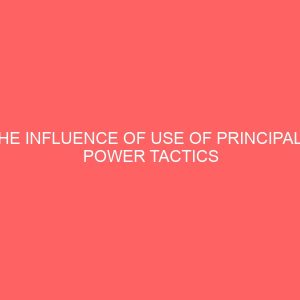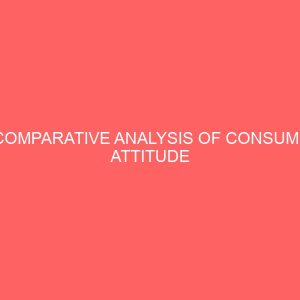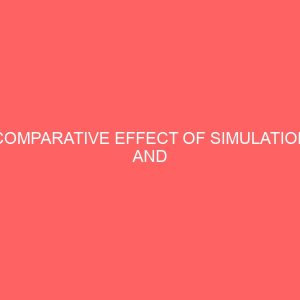Description
ABSTRACT
The study analysed the influence of principals use of power tactics for teachers retention in government approved private secondary schools in Anambra State. Four research questions and four null hypotheses tested at 0.05 level of significance guided the study. The study, which had a population of 340 government approved private secondary schools employed a descriptive survey design using a sample of 1,919 teachers selected 6,038 from all government approved private secondary schools in Anambra State through multistage sampling technique. Questionnaire developed by the researcher were used to elicit information from principals and teachers respectively as they relate to four major power tactics used by principals in influencing teachers retention. The questionnaire were validated by three experts. The reliability of the instrument for teachers was obtained using Cronbach Alpha Coefficient and the following were obtained; 0.74, 0.76,0.78 and 0.79 indicating high and positive correlation. While the reliability of the instrument for principals was obtained using Cronbach Alpha and the following were obtained; 0.82, 0.84, 0.85 and 0.87 indicating high and positive correlation. Mean scores were used to answer the research questions while ttest was used to test the null hypotheses at 0.05 level of significance. The findings of this study revealed that not all power tactics can be used in influencing teachers retention by the principals and that principals should know the right power tactics to use at the right time. Based on the four null hypotheses tested at 0.05 level of significance, the researcher concluded that power tactics is not the only means through which principals of government approved private secondary schools can influence their teachers retention. It was therefore recommended that school proprietors should in conjunction with the Ministry of Education organize workshops and enlightenment campaign programme for principals to enable them know how to tackle teacher retention problems and how teachers can be influenced by the principals positively.
TABLE OF CONTENTS
TITLE PAGE i
APPROVAL ii
ACKNOWLEDGEMENTS iii
ABSTRACT v
TABLE OF CONTENTS vi
LIST OF TABLE ix
LIST OF APPENDICES x
CERTIFICATION xi
DEDICATION xii
CHAPTER ONE: INTRODUCTION 1
Background to the Study 1
Statement of the Problem 7
Purpose of the Study 8
Significance of the Study 9
Scope of the Study 10
Research Questions 12
Hypotheses 12
CHAPTER TWO: REVIEW OF RELATED LITERATURE 14
Conceptual Framework 15
Concept of Power 15
Concept of Principalship 25
Concept of Leadership 26
Concept of Influence 29
Concept of Power Tactics 30
Concept of Teacher Retention 37
Concept of Job Satisfaction 39
Theoretical Framework 40
The TwoFactor Theory of Motivation 40
Teacher Retention Theory 44
Empirical Studies 53
Power Tactics and Teachers Retention 53
Job Satisfaction and Teachers Retention 57
Summary of Literature Review 59
CHAPTER THREE: METHOD 62
Research Design 63
Area of the Study 63
Population of the Study 64
Sample and Sampling Techniques 64
Instrument for Data Collection 66
Validation of the Instrument 68
Reliability of the Instrument 69
Method of Data Collection 70
Method of Data Analysis 70
CHAPTER FOUR: PRESENTATION AND ANALYSIS OF DATA 72
Summary of Findings 86
CHAPTER FIVE: DISCUSSION OF RESULTS CONCLUSION
AND RECOMMENDATION 88
Discussion of Results 88
Conclusion 96
Implications of the Study 96
Recommendations 98
Limitations of the Study 99
Suggestions for Further Research 100
Summary of the Study 100








Reviews
There are no reviews yet.